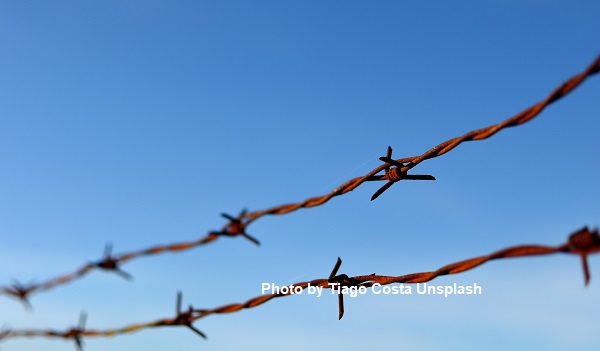Two more deaths have been recorded at the Poland-Belarus border, marking six lives lost at the border in a seven-day period. Testimonials of people crossing the border and an investigation from Amnesty International documents Polish border guards conducting pushbacks. The state of emergency which severely restricts media and humanitarian access to the border zone has been extended by the Polish parliament for another 60 days. The European Court of Human Rights (ECtHR) has repeated its demand to Poland for the provision of assistance to people stuck at the border, while European Home Affairs Commissioner Johansson met with the Polish Interior Minister to discuss the situation.
On 25 September, a man died of a heart attack when a group of people were detained by the Polish border guard “500m from the border with Belarus”, according to Polish guards. The same evening, a 16-year-old Iraqi who was part of a group that included four children – the youngest of whom was 18 months old –was pushed back to Belarus. Being in a critical health condition when he first crossed into Poland, volunteers say he died as a result of not receiving the necessary medical attention.
The details of these tragedies have proved difficult to verify as the region is under a 30-day state of emergency imposed by the Polish government which proscribes the entry of journalists, NGOs and outside observers. NGOs such as the Ocalenie Foundation have nonetheless gathered evidence of pushbacks that violate EU and international law. A Kurdish man told journalists: “When we go to Belarus, they beat us there, they take our money and send us back to Poland. The Belarusian police push us back to Poland. These children cannot walk, they will all die on the road, in the forest. We have no food or water. We walk 40 kilometres to Belarus, they catch us there, beat us, and send us back to Poland. Over and over between Poland and Belarus.”
The request by 21 doctors to enter the zone to provide humanitarian assistance has been rejected by the Deputy Interior Minister, who said the provision of aid would play into the hands of Belarussian propaganda. NGOs and activists appealed, saying “If the situation does not change, we will find mass graves of refugees in the forests”. According to the Helsinki Foundation for Human Rights in Poland, the suspension of the activities of journalists and aid workers at the border “makes it impossible to document and publicise abuses by state officials”. Amnesty International has however used satellite footage from 18 August to establish that people were illegally returned from Polish territory to Belarus. “Forcing people back who are trying to claim asylum without an individual assessment of their protection needs is against European and international law,” said Eve Geddie, director of Amnesty International’s EU office.
On 29 September, President Andrzej Duda signed a motion to extend the state of emergency by a further 60 days that was approved by MPs late on 30 September. On September 27, Interior Minister Mariusz Kaminski told media that Poland has recorded 9,400 attempts to “illegally” cross from Belarus since August, with 8,200 of them being foiled. About 1,200 people are being held in detention centres after being caught attempting to enter Poland. At the same press conference, the minister said that terrorist and illegal content, including that related to Islamic extremism, had been found on the phones of people crossing its border. The allegations – which include zoophilia and paedophilia – have been called “wild” by critics who say such unauthenticated claims are an attempt to demonise refugees.
On 28 September the European Court of Human Rights (ECtHR) repeated its demand to Poland for the provision of assistance to 32 Afghans who have been trapped for weeks in makeshift camps at the border. The Strasbourg Court had already issued interim measures on 25 August requiring Poland to provide food, water, clothing, medical care and possibly a temporary shelter to the people, but Poland has failed to act. In the new order, the ECtHR highlights that non-compliance may entail a sentence for hindering “the right of Afghans to have recourse to the ECtHR.”
In a recently published a legal analysis of this situation, the Polish Helsinki Foundation found that Poland’s refusal to examine their asylum applications and attempts to conduct summary returns to Belarus violate the principle of non-refoulement. In its assessment of the recent amendments to Polish law, the Foundation also concurred with the UN Refugee Agency’s finding that the changes contravene protections against expulsion of asylum seekers.
In addition to the group of 32 Afghans, a group of Yazidis who fled Iraq had been stuck at the border without food and water for seven days. On 29 September, Alarm Phone alerted to another group of 15 people stranded and without food for several days, saying they were being threatened by Belarussian forces with dogs.
On 30 September, European Home Affairs Commissioner Ylva Johansson met with Interior Minister Mariusz Kamiński in Warsaw to discuss the situation at the EU’s eastern borders. The Commissioner said that the two “had an open and frank discussion” about the border situation, and mutually condemned the “hybrid warfare” of Belarus. The Commissioner did not however deliver on the requests of NGOs such as the Ocalenie Foundation, who called for her to insist Poland stop pushbacks, provide assistance to the trapped people, and provide access to journalists.
For further information:
- ECRE, Poland: Four Deaths at Belarus Border Expose “Dire Situation” Of Stranded Refugees – UNHCR Requests Access as Poland Deploys More Soldiers, September 2021
- ECRE, Poland: UNHCR Regrets Restrictions on the Right to Claim Asylum, September 2021
Photo by Tiago Costa on Unsplash
This article appeared in the ECRE Weekly Bulletin. You can subscribe to the Weekly Bulletin here.

